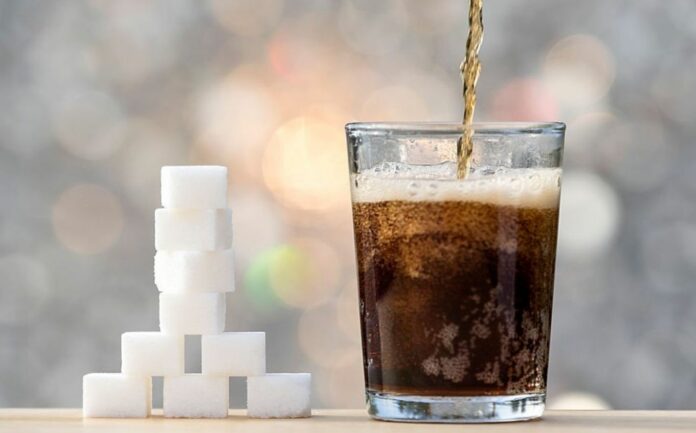A new study says that by adding blends of mineral salts, zero- and low-calorie drinks can now offer a better flavor, resembling the taste of real sugar.
Currently, there are no perfect noncaloric alternatives to sugar and high fructose corn syrup. Existing substitutes often have an unpleasant aftertaste and lack the same mouthfeel as sugar, leaving consumers unsatisfied.
However, researchers in ACS’ Journal of Agricultural and Food Chemistry have proposed a potential solution.
They suggest adding blends of nutritionally important mineral salts to noncaloric sweeteners to make them more closely resemble real sugar. In taste tests, participants indicated that these blends improved the flavor of zero- and low-calorie drinks.
Sugar substitutes are commonly used in sodas, baked goods, and frozen desserts to cater to individuals seeking lower-calorie or low-sugar options. However, many natural or synthetic noncaloric sweeteners, such as stevia and aspartame, have a delayed sweetness that lingers long after consumption.
Additionally, they do not provide the same mouthfeel as real sugar. Previous research by Grant DuBois and colleagues found that sodium chloride and potassium chloride could enhance the onset of sweetness and reduce its persistence for one stevia compound called rebaudioside A.
They hypothesized that these salts compress the mucus hydrogel covering taste buds, allowing rebaudioside A molecules to reach the taste buds more quickly and leave sooner.
However, high concentrations of these salts were necessary to achieve the desired effects, resulting in off-tastes. Consequently, the researchers aimed to investigate other mineral salts and their impact on commercially available noncaloric sweeteners to enhance the taste of products.
In initial tests conducted with a trained sensory panel, the researchers discovered that calcium chloride, magnesium chloride, and potassium chloride individually reduced the perceived intensity of rebaudioside A after two minutes.
However, significant quantities of the mineral salts were still required to lower the intensity by more than 30%, leading to unpleasant sensations of saltiness or bitterness.
Subsequently, the team experimented with a blend of the three taste-modifying salts, which produced synergistic effects.
This allowed them to use smaller amounts of each salt while achieving the same desired effect. The blend of potassium, magnesium, and calcium salts reduced the lingering sweetness by up to 79% and significantly enhanced the sugar-like mouthfeel of ten different noncaloric alternatives.
Although some taste testers still detected a slight saltiness in a few sugar substitute formulations containing the all-chloride mineral salt blends, the researchers addressed this issue by testing reduced-chloride versions.
They successfully resolved the faint salty off-taste problem and greatly improved the taste of two commercial zero-calorie colas. Furthermore, the researchers added salt blends to a reduced-calorie orange juice and a citrus-flavored soft drink made with high fructose corn syrup.
These additions made both beverages taste more similar to their sugar-sweetened counterparts. The researchers believe that their approach shows promise in replicating the taste of real sugar in low- and zero-calorie beverages.
Image Credit: Getty
